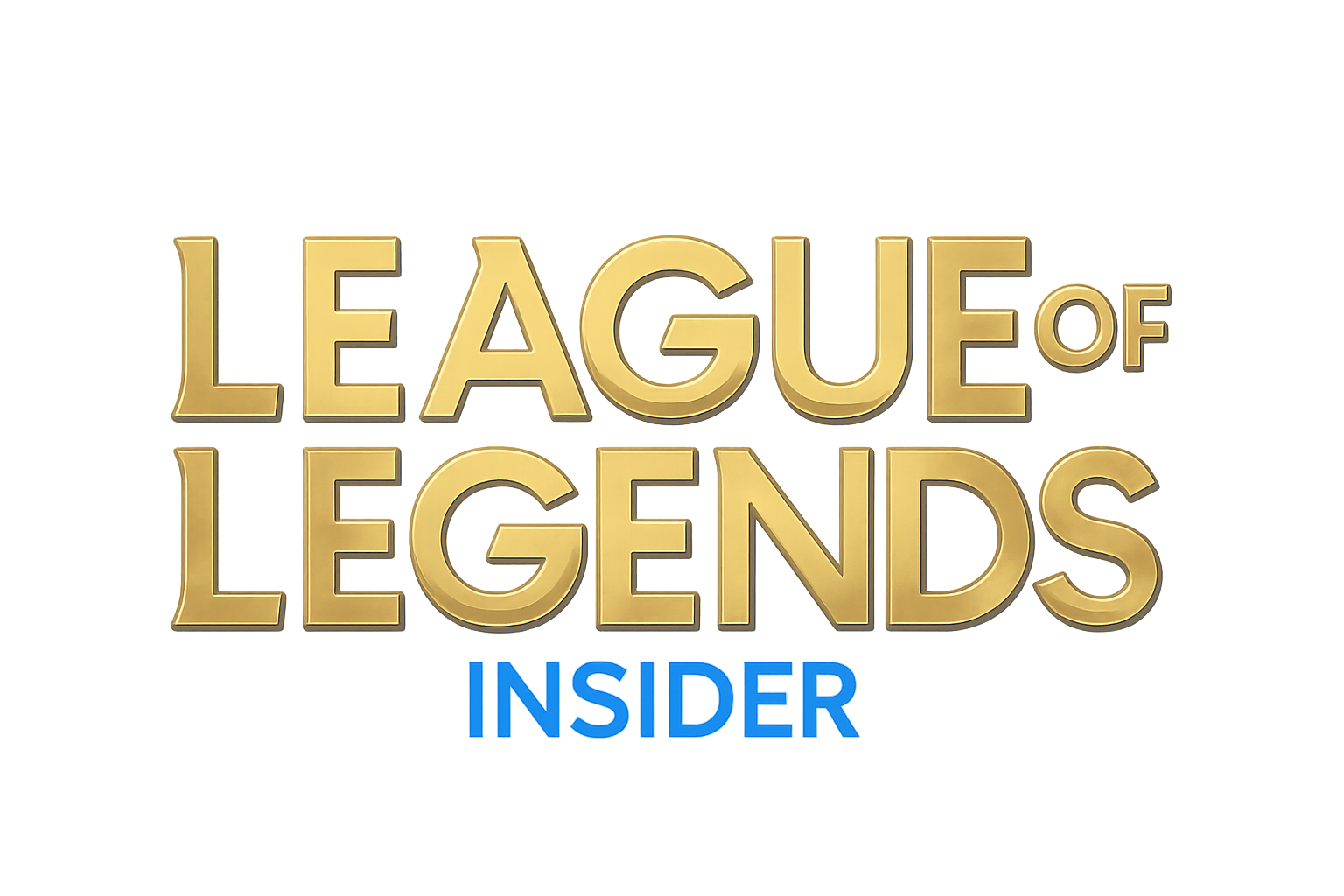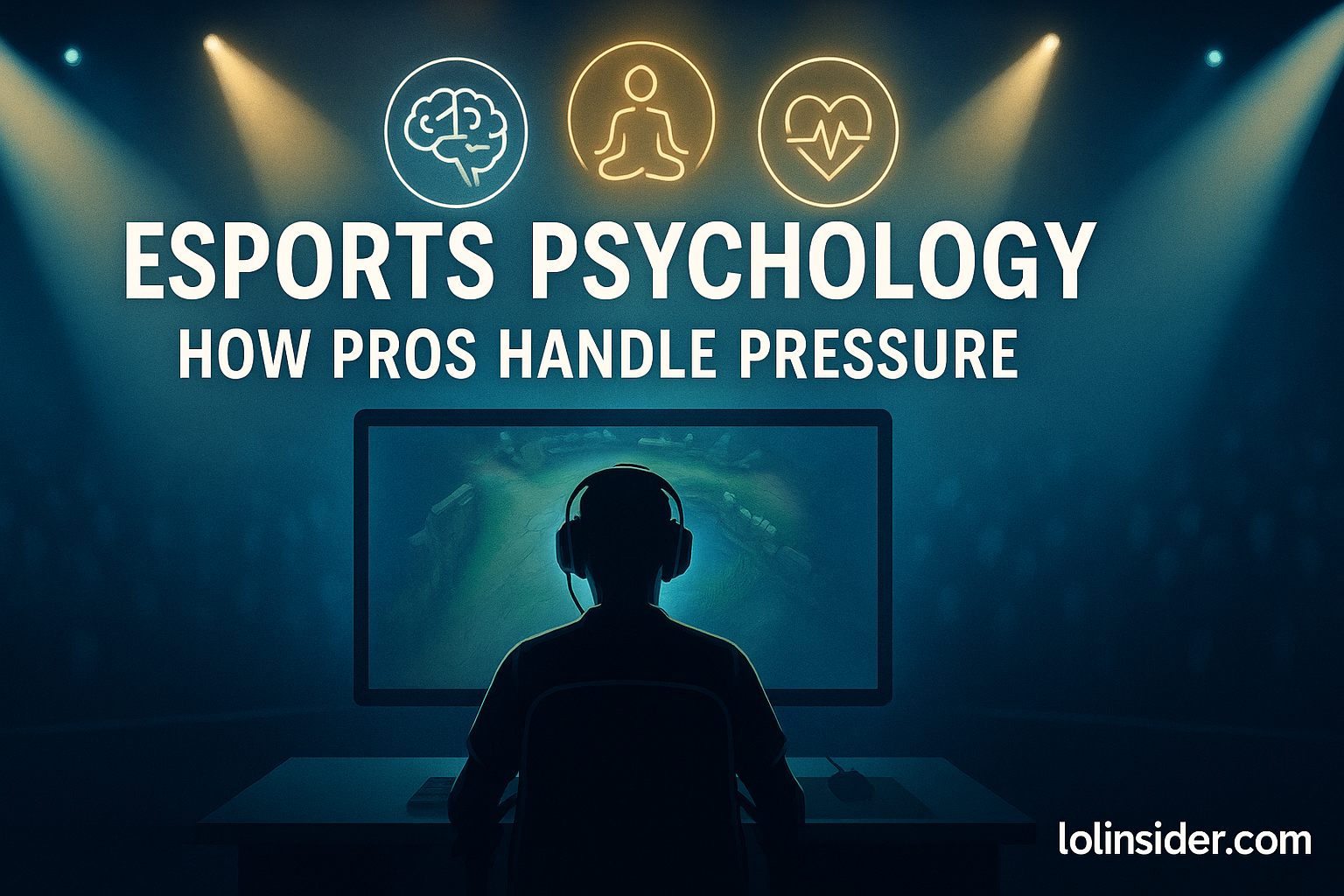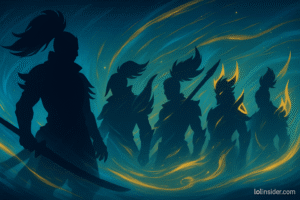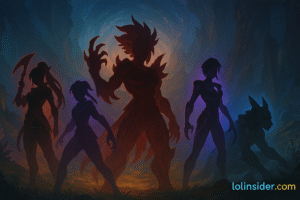Competitive League of Legends is not only about mechanics, draft, or strategy — it’s also about psychology. Pro players face immense pressure: thousands of fans in arenas, millions watching online, and entire regions placing expectations on their shoulders.
Some thrive under this intensity, while others crumble. Understanding esports psychology: how pros handle pressure reveals why the best stay calm in chaos — and how you can apply their techniques to your own games.
This guide explores mental preparation, coping mechanisms, and case studies from professional League of Legends to show what separates average competitors from champions.
1. The Nature of Pressure in Esports
Pressure comes from multiple sources in professional League:
- Crowd Expectations: Stadiums filled with cheering (or booing) fans.
- Online Scrutiny: Social media amplifies every mistake.
- High Stakes: Worlds, MSI, and regional finals decide careers.
- Internal Drive: Players push themselves to perfection.
Unlike casual solo queue, pros face constant external judgment. The psychological load can feel overwhelming without proper tools.
2. Stress and Performance – The Science
The Yerkes-Dodson Law explains performance under pressure:
- Low stress → boredom, lack of focus.
- Moderate stress → optimal performance.
- High stress → anxiety, mistakes, collapse.
Pros aim to hit the sweet spot of stress — enough to stay sharp, but not so much that it paralyzes them.
3. Mental Preparation Before Matches
Visualization
Many pros visualize upcoming games: imagining first ganks, dragon setups, or teamfights. This primes the brain for execution.
Routines
- Listening to music before games.
- Warm-up solo queue matches.
- Breathing exercises.
Example: Faker often warms up with practice games, then enters stage with the same calm facial expression every time. His routine stabilizes emotions.
4. In-Game Focus Techniques
Mindfulness on Stage
- Focusing only on immediate decisions.
- Blocking out crowd noise with noise-canceling headsets.
- Resetting mentally after mistakes instead of tilting.
Communication Control
- Clear, concise comms reduce stress.
- Leaders like Caps or Knight use calm voices to stabilize teammates.
Momentum Awareness
- Teams recognize when to slow down the pace to regain control.
- Avoiding overchasing after big plays.
5. Handling Mistakes Under Pressure
Every player misplays — the difference is psychological recovery.
Cognitive Reframing
Instead of “I threw the game,” pros think:
- “What’s the next best play?”
- “We’re still in this with scaling.”
Example:
In Worlds 2022, T1’s Gumayusi missed a critical Varus ult. Instead of collapsing, the team stabilized comms and refocused, later winning the fight.
6. Building Mental Resilience
Training Like Athletes
- Sports psychologists guide many LCK/LPL teams.
- Mental stamina is trained like physical skills.
Stress Exposure
Scrim environments replicate stage pressure to normalize stress.
Support Systems
- Coaches, analysts, and even family provide emotional balance.
- Team cultures that encourage mistakes as learning build resilience.
7. Common Psychological Challenges
- Stage Fright: Rookies often struggle under lights.
- Choking: Mechanical errors from overthinking.
- Burnout: Long seasons wear down mental energy.
- Tilt & Frustration: Carrying solo queue habits into stage play.
Example: Rookie Struggles
Many LEC rookies debut with shaky hands, missing last-hits. With experience and sports psychology, they learn to control adrenaline.
8. Pro-Level Case Studies
Faker (T1) – The Calm Icon
Known for unshakable composure, Faker treats stage games like solo queue. His neutral expression hides nerves, setting the tone for his team.
Uzi (Ex-RNG) – Pressure and Burnout
Uzi’s career showed the dark side of pressure: immense fan expectations contributed to stress-related injuries and early retirement.
Caps (G2) – Playful Under Pressure
Caps reduces stress by approaching games with creativity and humor, keeping teammates loose.
LPL Teams – Embracing Chaos
Chinese players often thrive in fast-paced games by reframing pressure as excitement.
9. Practical Techniques for Players
Even if you’re not a pro, you can adopt their mental tricks:
- Pre-Game Routine: Listen to the same playlist, warm up, and stretch.
- Mindset Shift: Treat losses as data, not failure.
- Breathing Exercises: 4–7–8 breathing lowers heart rate before ranked.
- Focus on Process, Not Outcome: Think “farm this wave” not “I must win.”
- Reset Button: If tilted, mute chat, reset mentally, and play the next fight.
10. The Future of Esports Psychology
As esports grows, psychology becomes central:
- More Professional Sports Psychologists: Already standard in Korea and China.
- Advanced Data Tracking: Heart rate monitors and brainwave feedback during scrims.
- Holistic Player Care: Balancing diet, sleep, and social health with mental training.
Expect the next generation of pros to have mental coaches as vital as mechanical coaches.
Conclusion
Esports psychology: how pros handle pressure explains why mental toughness is as important as mechanics.
- Pros prepare with visualization, routines, and sports psychology.
- They recover from mistakes using reframing and focus techniques.
- Resilience is built over time with proper team culture and personal habits.
The difference between a great player and a champion often isn’t skill — it’s the ability to stay calm when everything is on the line.







